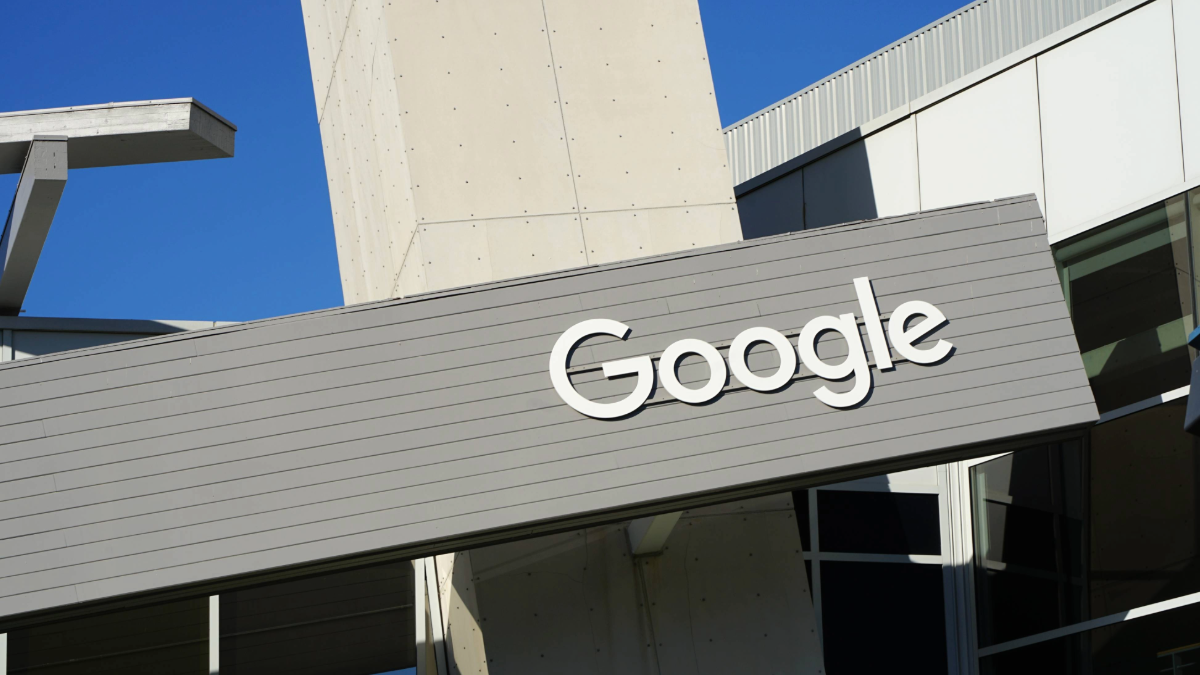The Limits of Antitrust Remedies in the Google Search Case
Mark MacCarthy / Sep 3, 2025The United States federal judge presiding over the Google search trial issued his remedies decision on September 2. He did not force a divestiture of the industry’s most popular browser, Chrome, and allowed Google to continue paying for favorable distribution of its search service, although not on an exclusive basis. He wrote that the market had become more competitive with the entry of AI competitors such as OpenAI into a transformed search market. To jumpstart search competition, the judge did require Google to share some user data and other information with qualified competitors.
The decision revealed the fundamental limitation of antitrust as a way to structure markets in the public interest. Former DOJ antitrust chief Bill Baer had perhaps the most optimistic take on this decision. “The real question,” he told the New York Times, “is going to be: Are these data licensing requirements and related requirements going to be sufficient to create the potential for a more competitive search market?” Others were despairing. Antitrust advocate Matt Stoller lamented that the judge’s decision “lets Google get away with monopoly.”
The plaintiffs did their best to claim victory. The Department of Justice described the judge’s remedies as “significant” and predicted that the judge’s ban on “exclusive contracts” relating to search distribution and the new data sharing requirements would “pry open” the search market.
In a statement, Phil Weiser, the attorney general from Colorado who spearheaded the state’s involvement in the case, said he was “appreciative” of the remedies imposed. Unlike the DOJ’s expectation that these remedies would be enough to restore competition, he predicted that “…as time goes on, the court will learn – and can revisit – what more may be needed to restore competition.”
In its statement, Google said the decision validated its perspective that competition in search “is intense and people can easily choose the services they want.” It is reviewing the decision and will likely appeal. Nevertheless, by escaping the divestiture bullet, Google won a significant victory. Its stock rose 8%.
Limits of antitrust
The premise of the antitrust laws is that markets must be competitive. Monopolized markets do not serve the public. They result in higher prices, less availability of goods and service, lower quality and a slower pace of innovative improvements.
But how antitrust remedies are supposed to achieve competition in markets has never been entirely clear. For years the antitrust mantra was that remedies were supposed to protect competition, not competitors. Under President Joe Biden, it seemed as if the antitrust agencies had finally turned against this idea that a market could be fully competitive in the complete absence of any competitors.
The agencies began to seek vigorous remedies in the cases they brought. Has Google monopolized the search market? Well, separate it from a major vector for this monopolization, namely, its control of the industry’s most popular internet browser, Chrome. Has Meta extended its monopoly in social media through acquisition of What’s/App and Instagram? Well, force Meta to divest these two services. Has Google monopolized both the buyer side and the seller side of the ad tech market, as well as the exchange service linking them? Well, require Google to decide which one of these businesses it will operate in. As I argued in an earlier Tech Policy Press commentary, the Trump Administration agencies largely followed the lead of the Biden agencies in seeking these robust remedies.
But the weak link is that agencies cannot impose remedies all by themselves. A judge has to establish the remedies. The idea of court-imposed punishment is intrinsic to the law enforcement approach of antitrust. A prosecutor brings a case, wins a conviction and then a judge decides the punishment. This is not a way to impose ongoing regulatory safeguards on an industry in need of permanent supervision.
As I argued in my 2023 book, Regulating Digital Industries, the best way to protect the public from monopoly abuse is through a robust regulatory regime that has the establishment and maintenance of competition as a primary obligation. The antitrust approach is pushing uphill to get where government action needs to go to protect the public from business misbehavior. It can be twisted and shaped, pushed and pulled, until it resembles the regulatory approach that is so urgently needed. But its central tendency is to let markets alone, to intervene in the least intrusive way, to minimize the role the government plays in dictating business activity.
The result is that antitrust must hide its regulatory protections behind a smokescreen, trying hard not to let the public or reviewing courts notice that it has moved beyond antitrust enforcement into the realm of a regulatory regime.
Privacy protections referred to the technical committee
The judge’s decision in the search case in connection with the technical committee and privacy protections illustrates the point. DOJ had suggested that key elements of the data sharing remedy including privacy protections would have to be implemented by a technical committee.
The judge agreed, noting that it is not unusual to have a technical committee “enforcing equitable antitrust remedies.” The data sharing remedies the judge imposed in the search case included access for search rivals to certain Google user data including “raw user-interaction data that associates queries and results with user interactions, such as clicks, hovers...” and certain kinds of “click-and-query data.” The judge said these data would have to be shared at least twice during the term of the judgment, set by the judge at six years. But the judge also ordered a cap on the number of times the data would have to be shared to protect against rival “free riding on Google’s data.” The judge intends to set the cap after consultation with the technical committee.
The judge recognizes privacy concerns. He says, “Think of a search query from a user in a small town regarding a rare health condition. Even if the user’s name is not included in the data, context could reveal their identity.” As a result, he mandates privacy measures to protect Google user privacy, noting “user privacy could be preserved with appropriate privacy-enhancing techniques and methods, such as adding noise, generalization, and k-anonymity.”
But the judge does not spell out the privacy enhancing techniques that must be used. Nor does he set out a balance between protecting privacy and providing utility to rivals, even though he acknowledges that privacy measures will result in data that is less useful for rivals than the data Google itself uses.
Instead he says “It is entirely appropriate for the court (and Plaintiffs) to rely on the Technical Committee to ‘facilitate the resolution of potentially complex and technologically nuanced disputes between [Google] and others over the practical workings of’ the final judgment.”
The court could have imposed more concrete requirements. As I argued in a piece for Brookings, “a requirement for reasonable deidentification should be added to the DOJ’s data access remedy and should be paired with a requirement that the data transferred must be usable for the intended purpose of developing an alternative search algorithm.”
I also argued that given the enormous value of Google search data in developing personalized AI search services, “Google search rivals should be permitted to receive deidentified Google user search data only on the condition that they agree to make no attempt to reidentify the data.”
These would clearly be regulatory requirements, telling businesses how to operate so as to protect the public from abuse. But the court did mandate them and instead kicked all such issues to the technical committee. Perhaps the technical committee could recommend these additions to the judge and the judge could adopt them, but it would have been wiser and more transparent if the judge had mandated them.
In a small win for privacy, the judge required that the technical committee contain a member with privacy and security expertise. This needed addition will give privacy advocates a fighting chance of ensuring that the needed data access requirements would be implemented in a way that adequately protects user privacy.
A second-best way forward
In the end, the civil society advocacy group Public Knowledge came closest to the real message of the judge’s decision in the search case, saying that “the courts cannot be the end-all, be-all of antitrust.” It urged Congress to return to the urgent task of sector-specific pro-competition legislation for the tech industry “that targets conflicts of interest, self-preferencing, and discrimination online.”
Congress has been down this road before with significant tech antitrust reform legislation considered in 2022, including the American Innovation and Choice Online Act and the Open App Markets Act. But that effort did not bear fruit and might have been the highwater mark of the tech antimonopoly moment. The current Congress and the Trump administration show few signs of interest in tech antitrust reform and indeed have shown hostility to the attempts by the European Union and the United Kingdom to implement their own pro-competition technology regimes through the EU’s Digital Markets Act and the UK’s Digital Markets, Competition and Consumers Act.
The administration might be somewhat erratic about its approach even to traditional antitrust – it appears to be opposing cases against US companies brought in foreign jurisdictions while pursuing similar cases at home. According to some reports, the US Department of Justice successfully called on the European Commission to delay a decision on remedies for Google’s anticompetitive conduct in the ad-tech market, even though the DOJ won a similar antitrust case in the US and is pursuing divestiture remedies that a court will be considering in a trial starting in a few weeks.
In light of the limitations on antitrust enforcement as a way to protect the public from monopoly abuse by tech companies, significant tech competition policy reform through new legislation would be the best way forward. Given today’s political realities, however, the second best would be for the antitrust agencies to push ahead with the cases that are already underway and make the strongest possible argument for effective remedies that will establish and maintain vigorous online markets providing innovation and choice to the public.
Authors

